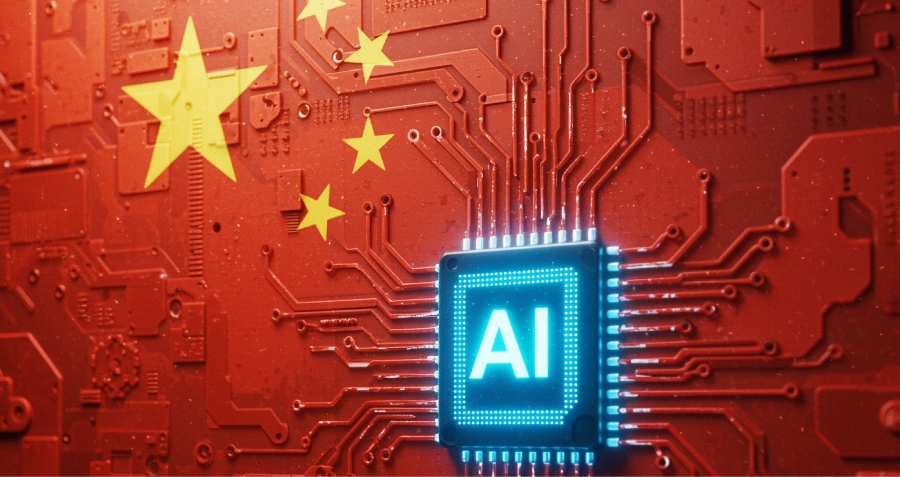An Interview with CKBSB Professor Eddie Ning on Why All Business Leaders Should Know AI Technology
Having earned his Ph.D. in Business Administration from the University of California, Berkeley, Dr. Z. Eddie Ning joins CKGSB as an Assistant Professor of Marketing. His current research focuses on information acquisition and its implications for pricing mechanism, alliance, product development, targeting, and privacy. He worked at Federal Reserve Bank of San Francisco as a policy analyst before starting his doctoral study.
1. How should we best prepare ourselves in the workplace for the disruptions AI could potentially cause?
While there are headlines warning that AI could lead to mass unemployment, this is unlikely to happen any time soon. There are few jobs that can be completely automated. However, every job has tasks that can be automated. I think everyone will face three realities. First, we will be working alongside intelligent machines that take over some of our current routine work, freeing us to engage in more creative tasks. Job descriptions will change too, with a bigger emphasis on non-routine tasks, especially those that require interactions with other human beings. Soft skills will become more valuable. Third, organizations will face challenges in navigating this transition. Organizational structures and decision-making processes will have to be updated.
2. How would you compare the usage of AI in the US and that in China?
US is the leader in terms of overall AI research and talent, but when it comes to applications, China is more enthusiastic than anywhere else. Chinese firms and government agencies have been more willing to experiment with AI technology, and are more optimistic about getting positive results. This general openness is key in harnessing the value of AI. It is fueling a transition towards a smarter society.
3. Should we be concerned with China’s enthusiasm for AI technology? We often read in the media concerns regarding China’s AI technology such as IP infringement, data breach, AI usage as a tool to censor and control – Are these concerns valid? Or are you optimism that the majority of AI technology will be applied for the betterment of society?
Absolutely we should be concerned. AI is a tool, so it is not inherently good or bad. We need to be aware of both bad actors using AI as well as unintended consequences from otherwise good use of the technology. Right now, lots of personal data is being collected, yet there is usually little transparency on how data is stored, who have access to it, and what it can/cannot be used for. This poses a huge threat for both public and personal safety. We have to better define these boundaries through regulations and ethical guidelines, but most importantly, we need to raise public awareness on these issues. That is why we desperately need to have more conversations about the ethical side of AI in order to see sustainable growth. I’m still optimistic. Technological advances in the past have all contributed to the betterment of society, so why not this time?
4. One of the surprising outcomes of COVID-19 is that we have all embraced technology such as cloud computing, AI software, etc. – What do you think will be the future of AI in business after COVID-19? Any predictions or trends we should watch for?
Already we are seeing how AI has been deployed to help combat the outbreak with faster diagnosis, drug development, movement tracking, etc. For the longer term, the current crisis boosts demand for SaaS, cloud computing, and other enterprise-facing services as more traditional firms upgrade their infrastructure to improve business intelligence and digitalize their operations. This transformation will create more structured data across business functions and industries. High quality data is the most important factor in the adoption of AI, but it is an area where many companies lag behind. While these processes take time, ultimately, I expect the growth of business applications to accelerate after COVID-19.
5. As a new professor at CKGSB, Please tell us about your background and how it has influenced your academic focus?
After graduating college with majors in math and economics, I spent time working in economic consulting and then in the Federal Reserve. These experiences made me realize that my interest was in academic research. During my PhD at Berkeley, I began to study competitive strategy in dynamic environment. This research path eventually led me to the topic of AI, which is enabling businesses to constantly learn from new data and adapt. Because AI is new, still very little is known about how its adoption will impact things like market structure, competitive behaviors, and social welfare. This is an exciting area of research that I look forward to exploring more of.
6. Why did you decide to come back to China, and why did you choose to join CKGSB instead of other B-schools? What excites you most about teaching at CKGSB?
Right now, China is the most exciting market for business research, as we are seeing an explosion of innovations. This is particularly true in the area of AI, where China is leading in its adoption. Among Chinese business schools, CKGSB stands out in its global presence, commitment to excellence, and strong support for research. When it comes to teaching, the biggest factor is the student body. CKGSB’s unparalleled and expanding alumni network gives me the opportunity to create real impact through teaching, as well as learning from our students who are experts in their prospective fields.
7. You teach “AI Technology and Its Business Application” – Could you explain why it’s important for business leaders to understand AI technology?
AI is a general purpose technology. What that means is that, in the not so distant future, every job function in every industry will utilize some AI-based tools to enhance productivity, transform the ways that things are done, or completely re-innovate business models. But today, the top two barriers that business leaders face are the lack of knowledge on how the technology works and the lack of clear use cases. This class is intended to bridge this gap.
8. What’s your expectation for Global MBA students who take this course?
I hope after taking this class, students can understand the basic logic and working mechanisms behind common state-of-the-art AI algorithms. They should also have a general awareness on how these algorithms are being applied in various industries. Last but not least, I hope they gain an appreciation for the potential of AI to disrupt society, both in positive and negative ways, and be aware of ethical issues that are emerging.
9. Finally, for our last questions – Tell us something we don’t know about you that you think your students would find interesting?
While working at the Federal Reserve Bank of San Francisco, I was trained and certified to identify counterfeit cash by hand. So if you ever suspect that you received some fake money, send them my way. Free of charge!




















